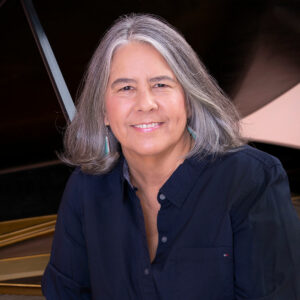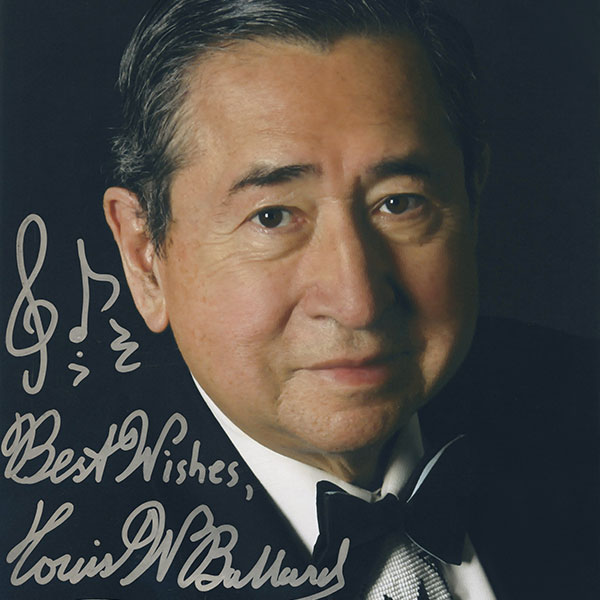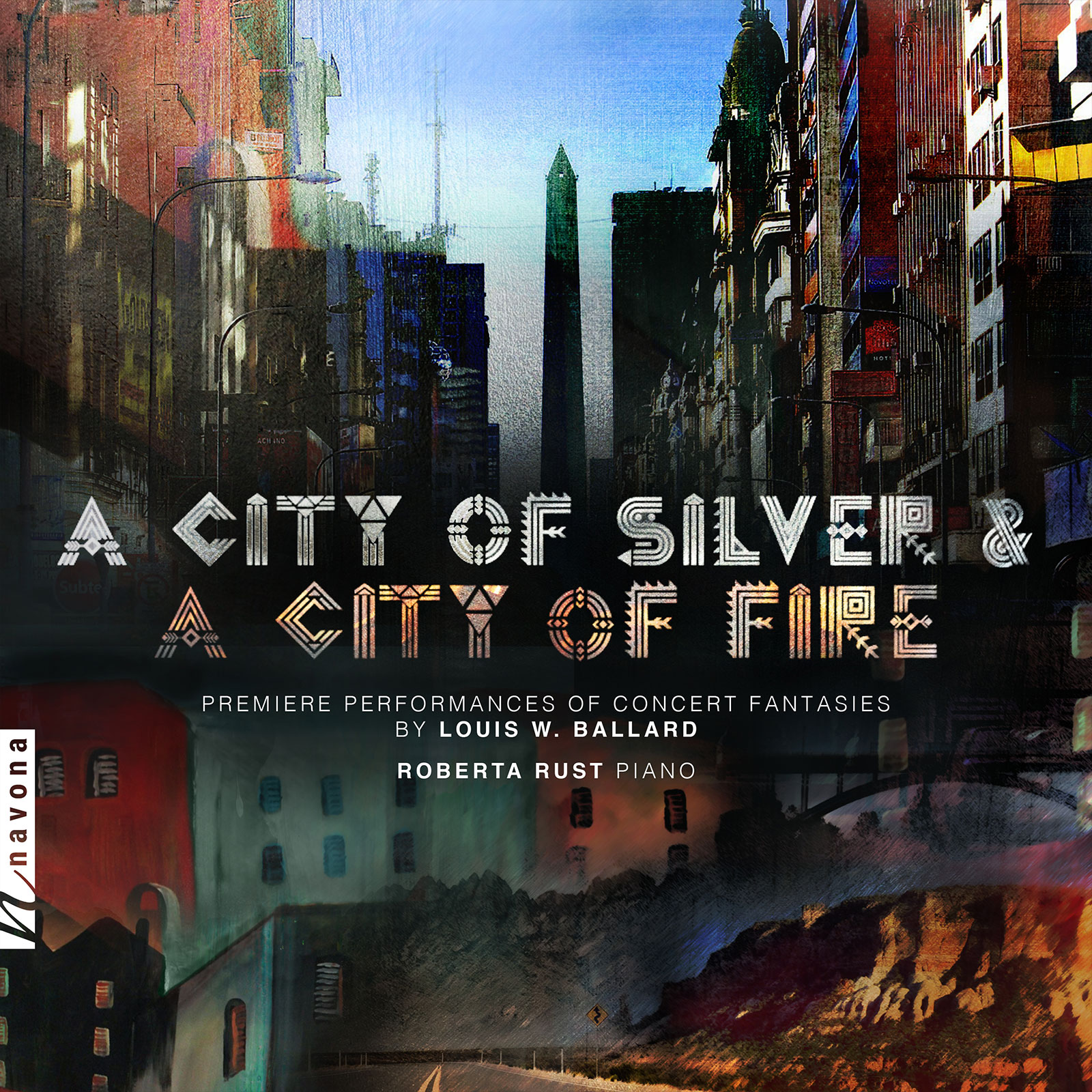A City of Silver & A City of Fire
Louis W. Ballard composer
Roberta Rust piano
A CITY OF SILVER & A CITY OF FIRE from pianist Roberta Rust marked a monumental moment for classical music as Carnegie Hall’s first presentation of music by an American Indian composer performed by an American Indian artist. Written in celebration of two cities close to the composer’s heart, these works by Louis W. Ballard come with a generous helping of intricate musical narratives and sentimental tones that speak clearly and thoughtfully through Rust’s performance. Originally recorded in 1984, these pieces honor the late composer and spirit of those to whom they’re dedicated in this live recording.
Listen
"I therefore encourage listeners to spend quality time hearing and reading its illuminating contents multiple times over."
Track Listing & Credits
| # | Title | Composer | Performer | |
|---|---|---|---|---|
| 01 | A City of Silver - concert fantasy for pianoforte | Louis W. Ballard | Roberta Rust, piano | 7:11 |
| 02 | A City of Fire - concert fantasy for pianoforte | Louis W. Ballard | Roberta Rust, piano | 7:41 |
A City of Silver & A City of Fire
Recorded October 12, 1984 at Carnegie Recital Hall in New York NY
Executive Producer Bob Lord
Executive A&R Sam Renshaw
A&R Director Brandon MacNeil
A&R Chris Robinson
VP of Production Jan Košulič
Audio Director Lucas Paquette
Mastering Melanie Montgomery
VP, Design & Marketing Brett Picknell
Art Director Ryan Harrison
Design Edward A. Fleming
Publicity Patrick Niland, Aidan Curran
Content Manager Sara Warner
Artist Information

Roberta Rust
Roberta Rust has concertized to critical acclaim around the globe, with performances at such venues as Carnegie Hall's Weill Recital Hall, New York's Merkin Concert Hall, Rio de Janeiro's Sala Cecília Meireles, Washington's Corcoran Gallery, Havana’s Basilica, and Seoul's KNUA Hall. Hailed for her recordings on PARMA (Navona), Centaur, and Protone labels, Rust has appeared with the Lark, Ying, Serafin, Amernet, and Fine Arts String Quartets and at Miami's Mainly Mozart Festival, the Philippines Opusfest, the Palm Beach Chamber Music Festival, Festival Miami, Long Island's Beethoven Festival, and France's La Gesse.

Louis W. Ballard
Louis W. Ballard, born at Devil’s Promenade OK on July 8, 1931, was acknowledged during his lifetime as the leading Native American composer of classical music, creating major symphonic works, choral works, chamber music, and ballet music. His music received premieres at Lincoln Center, Kennedy Center, the Smithsonian Institution, Hollywood Bowl, Town Hall, and Carnegie Hall. He used Indian subjects authentically without sacrificing his own originality as a composer. His Incident at Wounded Knee was commissioned by the St. Paul Chamber Orchestra and received numerous performances in the United States and Europe.
Notes
A City of Silver & A City of Fire: Premiere Performances of Concert Fantasies by Louis W. Ballard
The genesis of these premiere performances of Louis W. Ballard’s concert fantasies for piano occurred when I first became aware of his music in the early 1980s. At that time I was living in Great Neck, Long Island and read a review of an Alice Tully Hall performance given by the American Composers Orchestra — with Dennis Russell Davies conducting — of Ballard’s Xacte’Oyan (Companion of Talking God). Subsequently, I heard the work on a radio broadcast and was deeply moved by it and called ASCAP (American Society of Composers, Authors, and Publishers) to try and find out if Ballard had composed any solo piano music. They gave me his contact information and I called him at his home in Santa Fe, New Mexico. He sent me a score to his concert fantasy for pianoforte, A City of Silver, which was inspired by his 1980 trip to Buenos Aires, Argentina, and bears the dedication “Para todos los desaparecidos del mundo” (for all the disappeared ones of the world), with specific reference to the people who vanished at the hands of the Argentine military in the 1970s. I decided to present its New York premiere in my October 1984 recital at Carnegie Recital Hall. The summer before that performance, Ballard told me about another concert fantasy he was working on, entitled A City of Fire, which was dedicated to Los Alamos, New Mexico. He asked me if I would give the world premiere of the work at my October 1984 recital, so I paired it with A City of Silver in the concert. This recording is from that recital. Ballard felt these pieces were celebrations of two cities that had a major influence on humanity. He also noted that the October 12, 1984 recital “marks the first performance in Carnegie (Recital) Hall of the music of a Native American composer by a Native American concert pianist.”
— Roberta Rust

